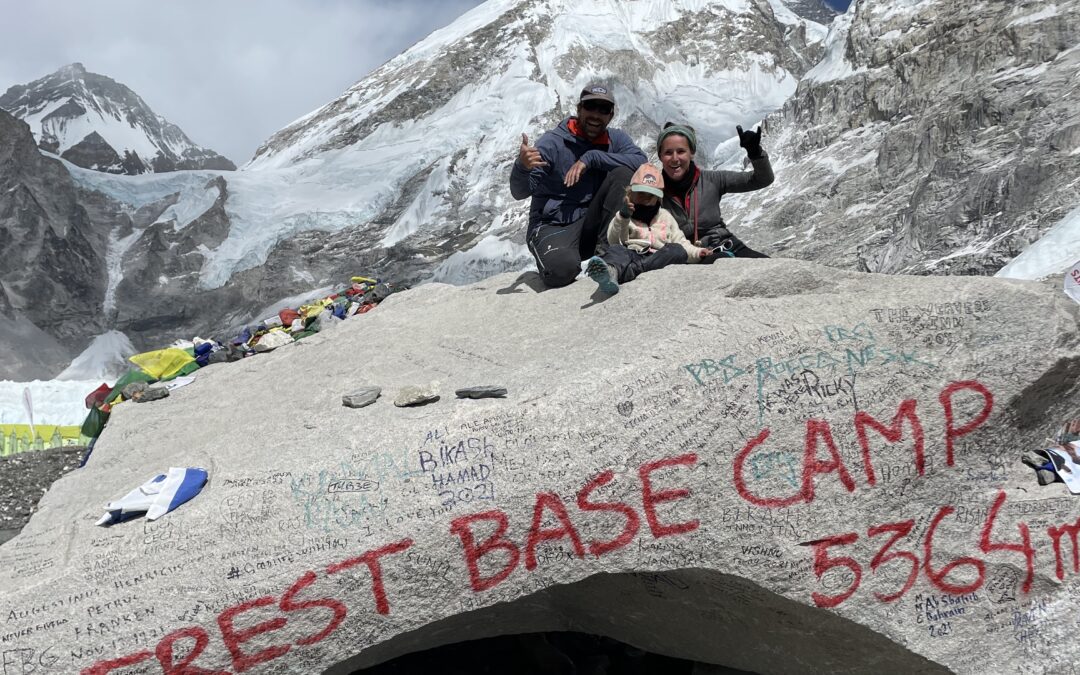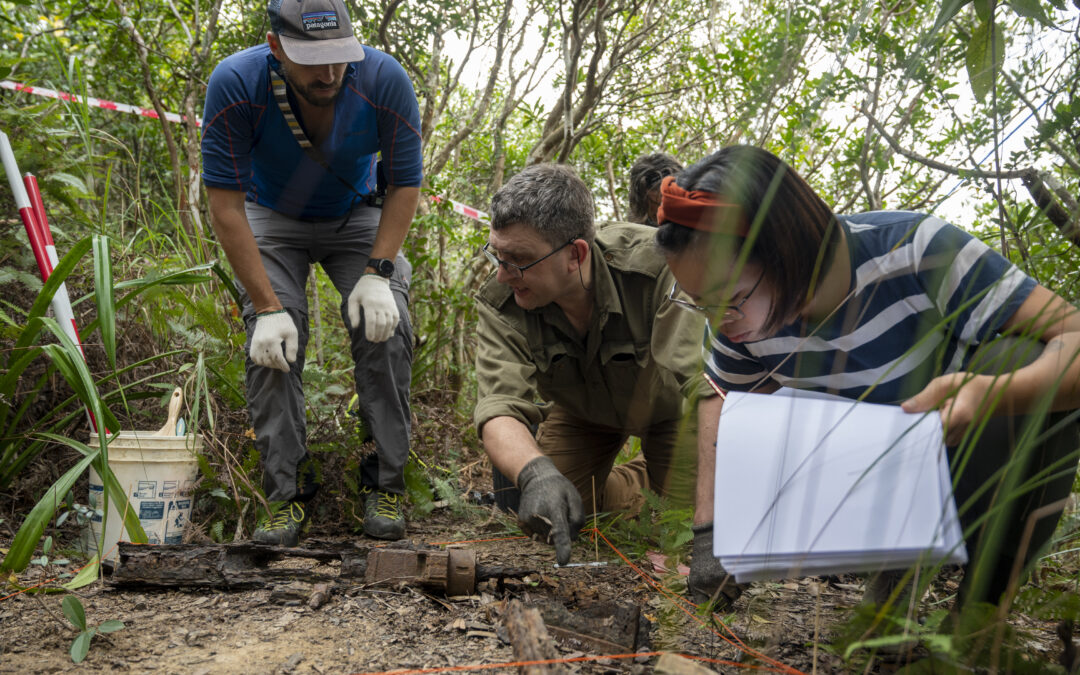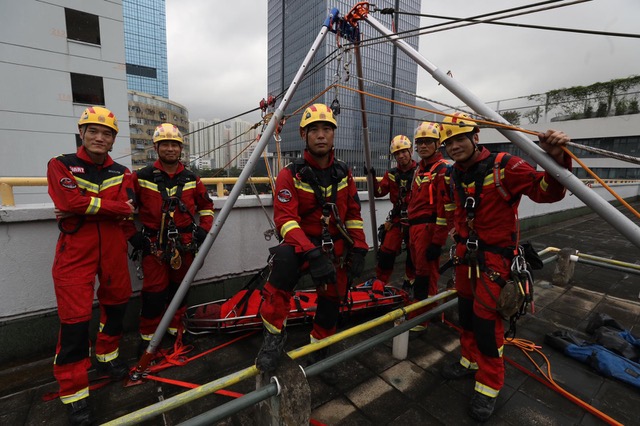Its the sixth day of our race to Rio, and I finally get myself to write
some lines. The whole crew has now settled firmly into the watch system.
This means that we operate the boat in two shifts, half the crew is on
watch – operates the boat, works, repairs – while the other one can sleep,
eat and/or do other stuff if time permits. Our skipper is very, very strict
on keeping the timing of the watch handovers, which have to start always
ten minutes before the start of a watch. As the watches always operate on a
four hour cycle during night and six hours during daylight, I find myself
most often awaken just after I felt being fallen asleep. Then its hush,
hush out of my bunk, get dressed (takes way longer than usual on the moving
boat), slurp down a tea to try to be up on deck on time. This means, that I
feel constantly tired, and especially during the night watches, which are
often less active and consist of sitting it on the damp and windy deck,
make it hard to stay awake. Only the occasional wave breaking over the
side, showering me in salt water, keep me going. After a few days I feel
myself getting into a sort of semi-awake state, neither fully fresh awake,
but also not dead tired, keeping on powered on 2.5hour power naps (in sum
that should be more than my usual sleep pensum, however it doesnt feel like
it).
In that state its also hard to get motivated to do any other stuff – I
tried to put down some notes yesterday on what happened the last few days,
but it all starts to form already into a vague memory (no real relation
anymore to what happened when. Days seem to morph into each other- is it
really saturday today? Hence also the delay in dropping these lines.
As mentioned earlier, I only saw the race start from down below deck, being
the mother for the day. Back on duty the next day, I found us positioned in
last place, which shouldnt improve over the next few days. Thats mostly due
to our skipper running a very conservative strategy, more focused on
preserving the ship and causing no damage to equipment and sail rather than
pushing for a front position. Thats probably also the reason why we havent
sailed most nights without Spinnakers, usually dropping them with last
daylight – on Wednedsday we tried to keep them up, but when the wind picked
up we had to emergency letterbox drop the kite and put up the Yankee two
(which wasnt yet hanked up, therefore a hell of a job to change). I was
exhausted after a nintey minute burst of activity at 2am.
From our competition we hear mainly stories of other boats having problems
with variable equipment and sails – we so far were spared from any damage,
but on Thursday a jibe took longer then expected (the headsail didnt wanted
to move over), which allowed a few buckels to come loose and rip holes into
the headsail – therefore sail down, quick hoist of the smaller Yankee
three.
While the sail repair team went on working (Mona and Marlies on our watch
– amazing how they managed to saw the sail within a few hours back together
– on a shaking boat!!), the bow crew (thats the people working on the front
of the deck, in my watch consiting of Antonio, Paolo and myself) made
everything ready for a spinnaker hoist. As the tack line was twisted, I had
to climb out onto the bow spread (the small thin pole at the front of our
boat), to get the line undone. Its an amazing place to be, especially when
the boat is surfing down six metre waves. Quite a few times I got showered
in water, but no rollercoaster ride can be more thrilling than a few
minutes on the very front of a full owered downwind sailing ocean yacht. As
the skipper decided to wait on the spinnaker hoist we tied it all up –
apparently not good enough. About an hour later, Lyndsey, a fellow member
of my watch shouted: Spinnaker over board!! – our tack seemed to have been
caught underwater during a particular strong wave, starting to unfold the
whole sail and getting sucked under the boat. We raced to foredeck (not as
easy as one has to constantly reattach the safetyline) throwing ourelf on
the sail and pulling the sheet like madman. It takes immense force to get a
150m2 sail back out of the water. Together with the my fellow team we
managedto somehow get it under control and after about thirty minutes and
utterly exhausted had the sail back in its bag and in the saillocker. The
Skipper was thankfully below deck during the episode and didnt see the full
extent of the drama – a close call
So most watches consist of burst of energy (sometimes I cannot even get to
reach my water bottle for hours) Thats especially true when sail changes,
tacks, jibes or reefs are requested. Otherwise its the duty to keep the
ship tidy and running – emptying the bilges (checking below the floorboards
and lazarette for water and pumping it out), cleaning the heads (toilets),
checking all ropes for chafing. It helps now that we are back in full
strength now – all crew members have finally overcome the seasickness, no
buckets required anymore – and a few minor injuries are recovered. My watch
colleague Karina, a always happy and smily girl with a funny Manchester
accent, got hit by a lazy sheet a few days ago, leaving her with a nice
blue eye and earning her the nickname “Rocky”. She is back in full
strength. The biggest hazard so far were cups of freshly poured hot tea
flying through the galley.
From our last position we have started now a hunt on the rest of the pack –
as I write this we are closing in on ninth and eigth placed Jamaica and
InvestAfrica. Team Garmin and Old Pulteney are somewhere far behind us. The
last 36 hours saw us continuously gaining during daylight hours – probably
a result of spinnaker being up, which we seem to trim well. Paolo, who
besides navigating also does our schedules (race standings), is giving us
the six hourly updates – which are usually greeted by our new battle cry:
“Jaeger, jaeger, jaeger – Bomb, bomb, bomb!!!”
More on that later.

The curse of the mosquito (or being caught out by climate change)
The plan was straightforward: Pack bags, travel to remote valley, hike to virgin peak. Climb! So was the plan for my recent expedition into the remote Naar-Phu valley in Nepal, which came together...




